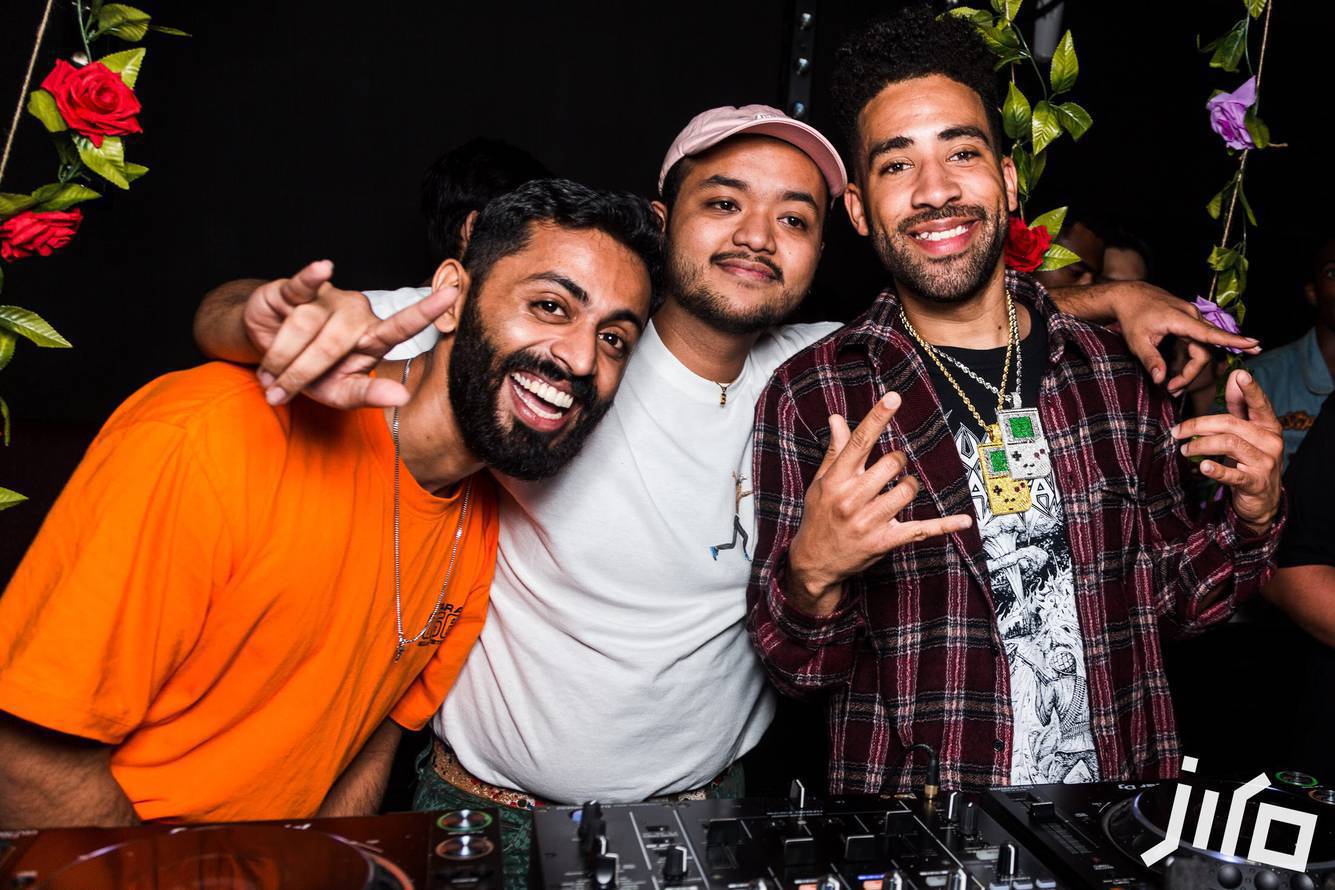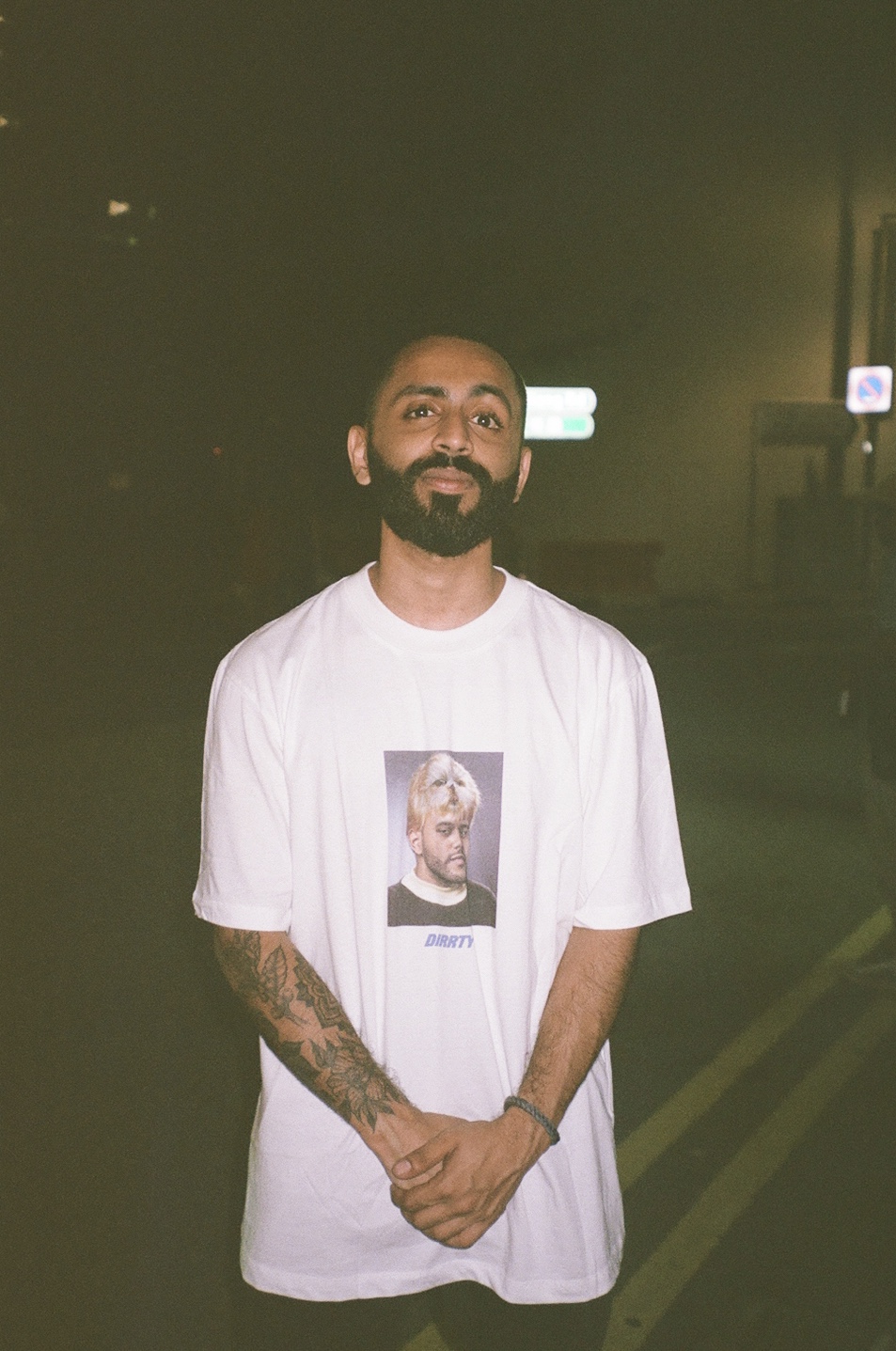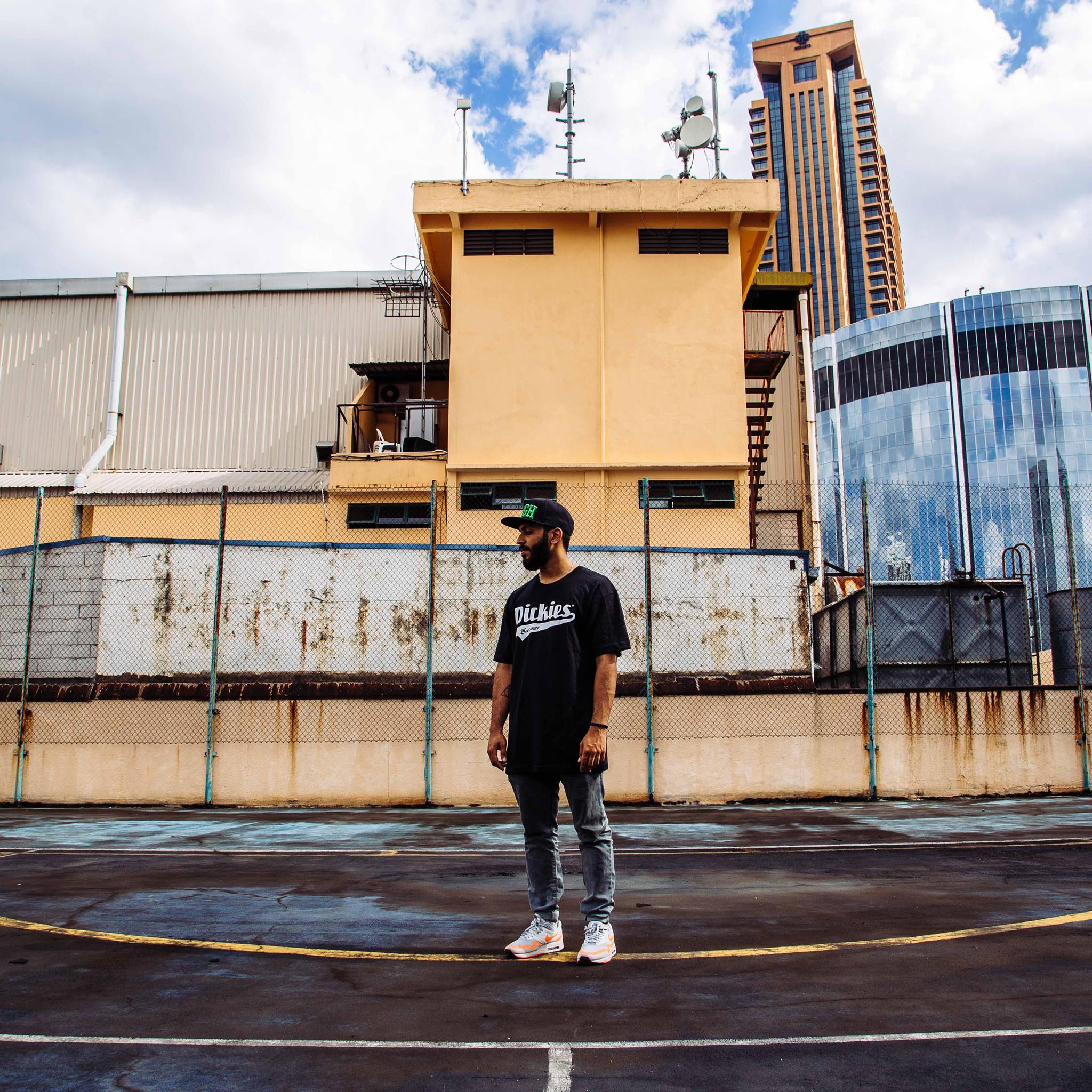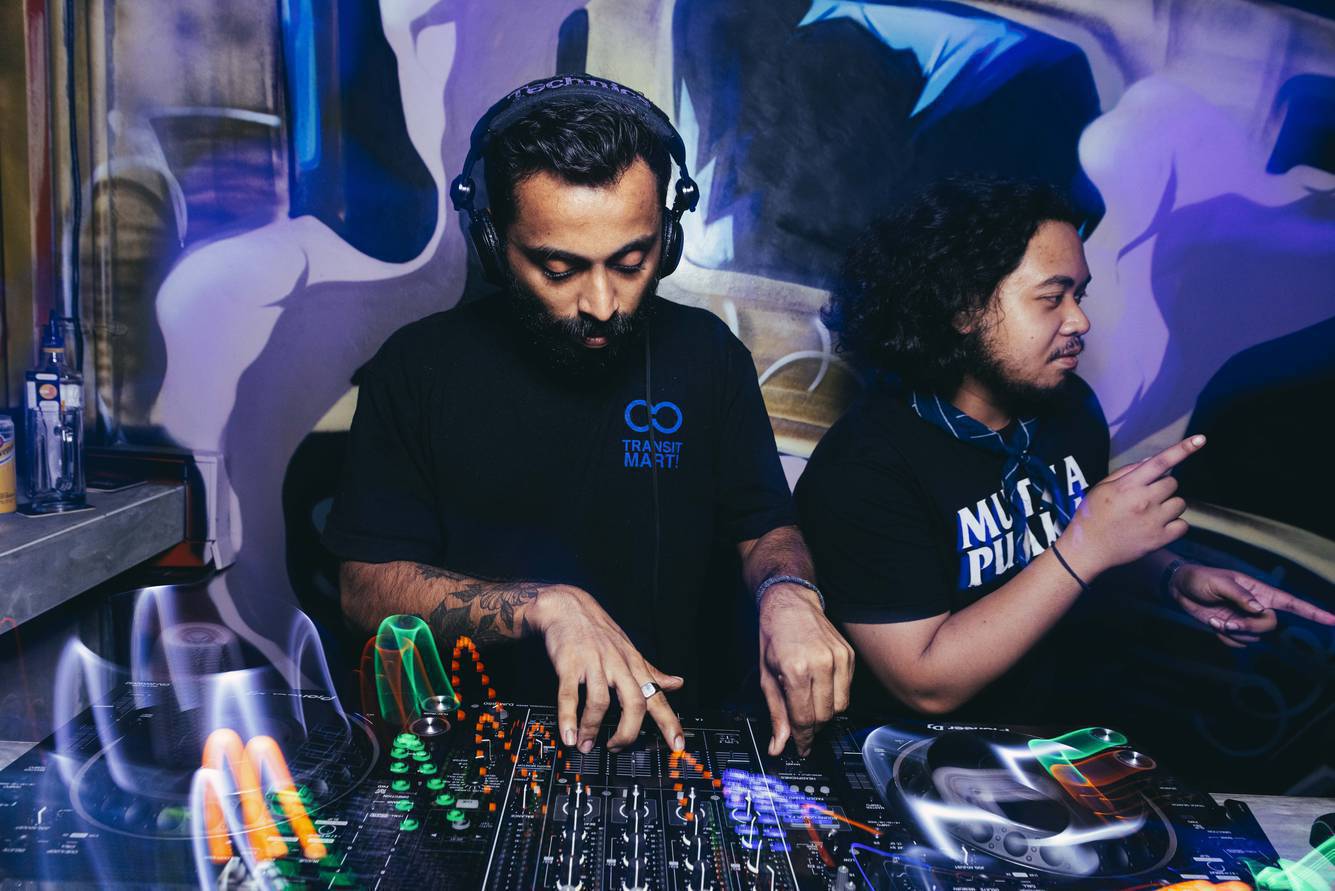by Brian Hioe
語言:
English
Photo Credit: Roshan Menon
Brian Hioe spoke to Kuala Lumpur-based DJ Roshan Menon, who is the founder of SaturdaySelects and co-founder of Laksa Records. The following article originally appeared on Electric Soul, a Hong Kong-based electronic music magazine and ticketing platform, on January 21st.
Brian Hioe: First, could you introduce yourself for readers that might not know you?
Roshan Menon: Hi, my name is Roshan Menon. I am a DJ based in Kuala Lumpur (KL), Malaysia. I’m also the founder of SaturdaySelects, an imprint focusing on promoting events and radio shows and co-founder of Laksa Records, an electronic music focused label.
I’m a photographer and graphic designer, too, but I’d like to say that I’m a creative person in general.

BH: How did you get into electronic music in the beginning? What was your encounter with electronic music?
RM: This is a great question. I started Saturday Selects five years ago. I was really into hip hop and commercial music at the time. That’s what we kind of started with. A lot of hip hop, RnB, future beats, very inspired by Soulection and Complexions’ The Future Beats show.
My first encounter with electronic music — I wasn’t really into house, I never really understood house music the first three years of running Saturday Selects. What happened was I got offered a job at a club called Jiro KL that was primarily known as an electronic music club. They basically hired me to bring in more Hip-Hop-centric nights, because people were coming for house and disco and techno on Fridays and Saturdays, but the club was pretty quiet from Tuesdays till Thursdays.
I came in to curate their nights and bring in more Hip-Hop nights as mentioned earlier so that’s what I was doing for the first two months. They were really impressed with the people that came and sales on the bar did pretty well.
After two months, they asked me if I’d be down to do a hip hop night on a Saturday. It was a three-room club. They had a balcony, they had a private room which fit about twenty to twenty-five people. And then the main room was fitted with Funktion-1s.
We did a Hip Hop night in the main room and there was this DJ by the name of Notion A who was playing on the balcony. And in the private room was another DJ by the name of Terrence C, who is currently based in Shanghai.
I was so curious about what they were playing, since I had never heard house music like that. So I go up to Notion A and I ask him, “What is this music? I haven’t heard this kind of house music.” And he was like, “Oh, this is called Detroit house and goes on to explain about it.”
And I was like, “Wow, I didn’t know house went by regions as well.” This was back in 2019. I went home after that and searched up Detroit house. That’s how I discovered Moodymann, Jay Daniel, and I think I just went on a roller coaster and started digging into more of the history of house music. Such as about New York house, which is how I found artists Louie Vega, Masters at Work, Kevin Saunderson, and watching documentaries about house music.
2019 was a huge turning point for me . After that night, I just fell in love with house music and started exploring it. I still feel like I’m learning. I learn a little bit more about house music every month. Different genres, the history behind it. But yeah, I got into electronic music in 2019 through my job at Jiro KL. [Laughs] Shout out to Adam Matthews for the opportunity too!

BH: To go further back, how did you start DJing? It’s a step going from listening to music to deciding that this is something you can do yourself.
RM: Completely. As I mentioned, I’m a photographer. What I was primarily doing around 2013 to 2015, was shooting a lot of live shows for Raising The Bar and HOAX Vision. So I really put myself into the scene. I was listening to a lot of Malaysian hip hop music. Like Sonaone, Joe Fizzow and DJ Fuzz too at the time.
I really got into hip hop through our local scene first. I only found out about “western hip hop”, like Eminem and stuff like that much later into the years. I wasn’t exposed to International hip hop when I was younger, even when I was in college.
Yeah so I was shooting a lot of live shows and I was just watching all these rappers, these DJs DJing for them, and just playing their sets. I knew rapping or singing probably wasn’t my thing because I was a massive introvert, I didn’t particularly enjoy performing on stage. But I had become friends with one of the DJs back in 2013 who had given me an insight into the scene.
He used to throw parties and was like, “Yo, why don’t you come and shoot for my parties and see if you like the music we play?” So that’s how I got into shooting Hip-Hop shows that eventually led to shooting artists like Badbadnotgood, Thundercat, Masego, and that’s how I got exposed to a lot of these people.
I met Ta-Ku backstage at the Good Vibes Festival in 2016 and at the time I was very inspired by what he was doing with his platform Create & Explore.
I was like, “I want to do something like that for our Malaysian artists.” Because I really wanted to shoot an album cover or press photos for Sonaone in KL back then.
I thought to myself If I get a musician to give me a beat and a photographer to shoot an album cover–I knew a whole lot of photographers back then–I realized I could create that synergy, the opportunity for a photographer to shoot someone’s album cover or single cover. And I was creating an opportunity for a producer to put out a beat that didn’t necessarily have to be by a label or something serious, they could just put it out.
That’s how I started SaturdaySelects with my friend Johann Razali. When we started Saturday Selects in April 2016, it was after five or six of these releases that we were putting out on SoundCloud. A lot of friends were like, “Yo, this is gaining traction, what are you guys going to do next? Are you going to keep putting out photographers and producers’ beats and stuff like that.”
But what is the next step? I had no idea. I was in university at the time. They were like, “Throw a party.” And I was like, “How do I throw a party?” [Laughs] “Oh, I’ll introduce you to my friend who’s the marketing manager at this bar, and he’ll help you out.” So in July 2016, we threw our first party and we had about 300 people that night.
I was playing tracks, echoing out and pressing play on the next track for the first six months. I had zero idea what I was doing but II was playing opening sets or the final closing sets. [Laughs]
Then in 2017, one of the OG DJs in KL, Random K.I.D was like, “Hey, I really like your selections, but you could be a better DJ..” And he taught me everything in 2017, so that’s how I got into it. I also have to thank my good friend Afaro as well who took the time to teach me how to mix properly back then when I wasn’t getting enough playing time and didn’t have decks to practice at home.
BH: So it’s been a journey from Saturday Selects from then until now.
RM: It definitely has been.
BH: What are the points you try to highlight in the event to make it different from other events? Or how do you see it as part of the scene?
RM: I guess when we first started Saturday Selects in the first three or four years, it was more creating an open format night. Because clubs in KL were either playing hip hop or EDM…or they play “KTV music.” [Laughs]
But I wanted a night where I could listen to Afro beats and dancehall all night mixed in with hip hop and RnB and maybe a little bit of commercial music and electronic music. That wasn’t really available at the time. So we were like, “Okay, let’s remain as open format as possible.” Because open format in KL felt like it only meant mixing EDM and hip hop, when the reality is that open format is so much more than that.
Whenever we book DJs and get them onboard to play, we would tell them, “You can play whatever you want, except for EDM and trance.” Those genres just didn’t fit the vibe of the night of the night and what we were going for. [Laughs]
From there, it just grew, especially with the future beats scene and us booking Soulection very early on in KL, we brought over Joe Kay,Esta, The Whooligan and Andre Power .Our crowd got exposed even more to this kind of music and started wanting it more. This diversification of genres starting at 9 PM and going all the way to 3 AM–every hour would be a different genre of music, because we would book a wide range of DJs.
Right now, we’re focusing a lot more on electronic music. Because I feel like ever since Circoloco happened in KL in 2019, it’s been “the sound” everyone’s been into and that was the first time that Peggy Gou came down. But the thing was, a lot of the younger crowd wasn’t really listening to electronic music.
I think there were about 2,000 people at the Circoloco gig, but without a doubt, Peggy Gou pulled in the majority of those people. The bright side is that, everyone was dancing and vibing to it just really created a sense that this was an opportunity that we needed to tap into and that we should put our focus there and that electronic music was growing in KL’s scene – both amongst the young and older scene.
We still have our radio shows that focus on hip hop and RnB, UK garage, and stuff like that. Our shows, the primary focus for the last one and a half years has been focusing on pushing electronic music, educating the younger crowd, then there is more than just this commercial future house sound. There is soulful house, deep house, vocal house and above all disco!
I love disco, I play a lot of 70s and 80s disco, I just got into collecting vinyls as well. That just drove me towards diggin more. The fact that I liked this track, and my girlfriend liked this track, and my circle of friends liked this track, I felt like that there’s so many more people that would enjoy this sort of music as well.
They probably just didn’t know at the time. And over the last one and a half months of KL reopening and gigs coming back, we’ve seen a whole bunch of 18 to 21-year-olds who pre-COVID only listened to hip hop, who are now all into house and techno. It’s insane. So shout-out to COVID for switching everyone’s music tastes in that case.
BH: That’s a way in which you see yourself as rooted in a scene but also trying to transform the scene?
RM: Educating more people about the music, because I’m kind of in between the younger crowd and the older crowd. I’m at that sweet spot age where I get to experience and be involved with both scenes.
BH: How were you affected by COVID, then? Because everything had to shut down.
RM: We had plans last year. We already confirmed a few international DJs last year. But everything got canceled. We were planning an entire Indonesian tour as well, we were going to play six or seven cities. We were in the middle of working everything out late last year. And even that had to be canceled.
I guess that was the biggest effect. I didn’t have a full-time job at the time as well cause this is completely something I love doing. I love throwing parties and I’m so passionate about music. The fact that people were paying me to DJ, when I first started DJing, just blew my mind.
Just that, and our primary source of revenue was always from events. We lost a huge chunk of revenue because of that. We tried opening up a studio last year and realized that it was a really tough market to get into, because people could spend on cheaper decks, learn at home through YouTube and they’re a bedroom DJ!
We did have six to eight students that our instructor had taught. It was a great learning experience on how a studio operates, how we market it, and stuff like that. But eventually we just realized that maybe running a studio is not for us.
BH: What are current projects that you’re working on? You mentioned things are reopening again, is that right?
RM: Yeah. We currently don’t have any Saturday Selects parties at the moment, because it’s not really optimal to do parties with the current situation of everything in KL.
With the new strain of COVID, Omicron, we have no idea what’s going to happen. Our government is taking precautions already. Today was the first announcement that there could be the possibility of a lockdown and asking everyone to plan for it. But we’re in the midst of some plans and hoping to be able to have parties again real soon some time this year.
BH: A bit about yourself, what else are you involved in besides electronic music? You mentioned that you’re a photographer and a graphic designer.
RM: I don’t shoot as much photography anymore. I think only once or twice a month for jobs. The same for graphic design work.
I cater a lot of my photography and graphic design work to the music scene, so I do a lot of album artworks, I shoot a lot of press kits and press releases, media releases, and stuff like that. I also previously launched an initiative called “Artists Need Press Kit Photos.”
I realized that a lot of live artists, particularly rappers in KL were taking photos with their phones. That was an issue because promoters were getting bad photos from artists. Photographers are charging their usual rates for these rappers–their standard rates, but rappers can’t afford it, particularly underground rappers.
I launched that program and photographed about five to ten rappers at a much lower discounted rate just to create those opportunities. And I do the same for my graphic design work for cover art and album art and things like that.
That’s not been as active as I would like, because I now work as a Business Development Associate at a digital marketing agency called C27. I’m helping them build their music business channel, so I primarily focus on music clients. I’ve been trying to work with speaker brands like Sonos and Marshall, and record labels. So that’s been taking up most of my time in the last seven months.

BH: Is there anything else you’re working on that you’d like to talk about?
RM: I’m launching a new label this year.. It’s called Laksa Records, it’s primarily focusing on electronic music. I’m starting it with a friend of mine called Mister Rodrigo, he’s a producer as well.
We have a handful of electronic music labels in Malaysia. Which is so weird for a country with a longstanding history with electronic music, with Zouk that opened in 2003 and legendary venues like Boom Boom Room. We just wanted to add some more flavor into the present mix and hopefully educate more people about house and disco and electronic music.
We have a whole bunch of radio shows for Saturday Selects coming up next year as well. I’m going to really be focusing on pushing our radio shows and giving more producers and DJs around the world an opportunity to use Saturday Selects as a platform to promote themselves more. Whether they are established, if they are rising, we have always worked with people all around the world and provided any support we can in their efforts to reach a wider audience and grow as an artist.



